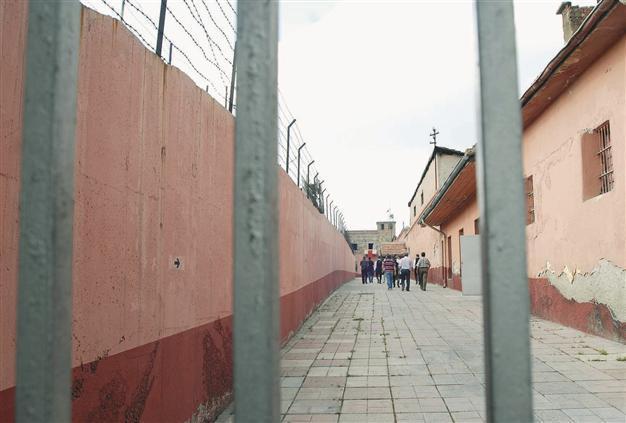New charter to bring strict rules on lengthy-detention
ANKARA - Hürriyet Daily News

A maximum six-month detention period for the pre-trial phase and a two-year detention period for prosecution phase are envisaged under the proposed article to be included in the country’s new constitution. DAILY NEWS photo, Selahattin SÖNMEZ
Parliament’s Constitution Conciliation Commission has completed an article bringing a number of strict conditions for detentions, in an effort to resolve Turkey’s contentious lengthy imprisonment periods.The maximum period for detentions will be limited to two years and a strong suspicion of crime will not be sufficient for issuing arrest orders. Judges could issue arrest orders only if there is a likelihood that the suspect will flee or remove evidence, according to the provision the charter panel has agreed on.
The sub-commission that was formed for penning-down the new charter has completed the 9th article, titled “Liberty and the Security of Individuals,” following the section on fundamental rights and freedoms.
The article includes a detailed amendment for detention orders, which aims at adoption of the jurisprudence of the European Court of Human Rights (ECHR).
A maximum six-month detention period for the pre-trial phase and a two-year detention period for prosecution phase are envisaged under the constitutional article. However, the main commission will have the final word on the issue. If approved, the amendment will bring a constitutional assurance for blocking the lengthy detentions. This provision may affect the lengthy detentions in the Ergenekon and Balyoz (Sledgehammer) coup plot cases.
The suspects will be informed about the custody and detention orders and their rights in a preferred language, either in writing or verbally, according to a provision that has been objected by commission members from the Nationalist Movement Party (MHP). They argue that translation into every language may not be possible in every condition. “If they want translation in Sanskrit, how will judges be able to find a translator?” they reportedly said.
Panel to meet with President
Meanwhile, Constitution Conciliation Commission members will pay a visit to President Abdullah Gül on June 11. The commission will inform Gül on the new constitution process and request his support for their work.
















